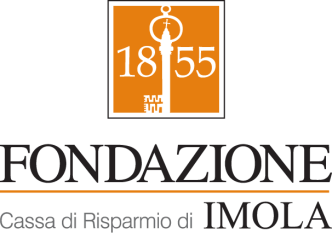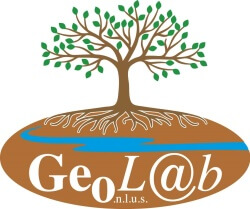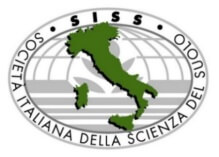THE GEOPOLITICAL DIMENSION OF ENVIRONMENTAL QUALITY. WATERS AND CONFLICT IN THE ARAL SEA BASIN
DOI:
https://doi.org/10.6092/issn.2281-4485/3812Keywords:
Aral Sea Crisis, Transboundary Water Resources Management, Sustainable Development, Environmental PoliciesAbstract
In the last decades the Aral Sea, located in Central Asia on the boundary between Kazakhstan and Uzbekistan, experienced a dramatic shrinking, divulged even in newspapers and magazines. Such an ecological catastrophe, renamed the “Aral Sea Crisis”, was triggered by the artificial diversion of the rivers of the basin during the Soviet period, in order to irrigate new cotton fields. Nowadays, notwithstanding the fulfilment of several environmental restoration projects and a wide scientific literature about the process, the general balance about the water body, in particular its Uzbek side, is still critical. This paper, after a synthesis concerning the causes and the consequences of the ecological disaster, analyses the geopolitical implications connected to the deterioration of the environmental quality in the region and to water management in Post-Soviet Central Asia, underlining, in the case of the Aral Sea Basin, the criticities linked to its fast transition from an internal basin to an international one. Finally, Central Asian water-related old programs and future scenarios are discussed.
References
BADYKOVA N. (2005) Regional Cooperation in Central Asia. A View from Turkmenistan, “Problems of Economic Transition” 48 (8), pp. 62-95, (2005).
BEDFORD D.P. (1996) International Water Management in the Aral Sea Basin, “Water International” 21(2):63-69.
CARLISLE H.L. (1997) Hydropolitics in Post-Soviet Central Asia: International Environmental Institutions and Water Resource Control, in The Political Economy of International Environmental Cooperation, Santa Cruz, pp. 41-53.
CARNEY C., MORAN J.P. (2000) Imagining Communities in Central Asia: Nationalism and Interstate Affect in the Post-Soviet Era, “Asian Affairs” 26(4): 179-199.
DARST R.G. Jr (1988) Environmentalism in the USSR: The Opposition to the River Diversion Projects, “Soviet Economy” 4(3):218-225.
ELHANCE A.P. (1997) Conflict and Co-operation over Water in the Aral Sea Basin, “Studies in Conflict and Terrorism” 20(2):207-218.
ELLIS W.S. (1990) A Soviet Sea Lies Dying, “National Geographic” 177(2):72-92.
FERGUSON R., The Devil and the Disappearing Sea, Vancouver, (2003).
FESHBACH M., FRIENDLY A.Jr. (1992) Ecocide in the USSR: Health and Nature under Siege, New York.
GLANTZ M.H. (2005) Water, Climate, and Development Issues in the Amu Darya Basin, “Mitigation and Adaptation Strategies for Global Change” 10:23-50.
GLANTZ M.H. (2007) Aral Sea Basin: A sea dies, a sea also rises, “Ambio” 36 (4):323-327.
GLANTZ M.H., FIGUEROA R.M. (1997) Does the Aral Sea merit heritage status?, “Global Environmental Change” 7 (4):357-380.
GORE A. (2006) An Incovenient Truth, Washington.
HANKS R. (2000) A Separate Space?: Karakalpak Nationalism and Devolution in Post-Soviet Uzbekistan, “Europe-Asia Studies” 52(5):939-953.
HANNAN T., O’HARA S. (1998) Managing Turkmenistan Kara Kum Canal: Problems and Prospects, “Post-Soviet Geography and Economics” 39(4):225-235.
HOLLIS G.E. (1978) The Falling Levels of the Caspian and Aral Seas, “The Geographical Journal” 144(1):62-80.
IFAS (2003A) IFAS: The way to Regional Cooperation, Dushanbe.
IFAS (2003B) 10 years IFAS (decisions and events), Dushanbe.
INTERNATIONAL CRISIS GROUP (2002) Central Asia: Water and Conflict, (ICG Asia Report N. 34), Osh/Brussels.
ISLAMOV B. (1999) Doubling Freshwater Inflow is the Key to Curbing the Aral Sea Crisis, in Russian Regions: Economic Growth and Environment, (International Symposium, Hokkaido University, July 21-24, 1999), Hokkaido, pp. 413-426.
IUCN (2004) 3rd IUCN World Conservation Congress. Resolutions and Recommendations, Bangkok.
KARIMOV I.A. (1999) Uzbekistan on the threshold of the Twenty-First Century, New York.
KEMELOVA D., ZHALKUBAEV G. (2003) Water, Conflict, and Regional Security in Central Asia Revisited, “New York University Environmental Law Journal” 11:479-502.
KHAMZINA A., LAMERS J.P.A., WORBES M., BOTMAN E., VLEK P.L.G. (2005) Assessing the potential of trees for afforestation of degraded landscapes in the Aral Sea Basin of Uzbekistan, “Agroforestry Systems” 10:1-14.
KINDLER J. (1998) Linking Ecological and Development Objectives: Trade-offs and Imperatives, “Ecological Applications” 8(3):591-600.
LIPOVSKY I. (1995) The Deterioration of the Ecological Situation in Central Asia: Causes and Possible Consequences, “Europe-Asia Studies” 47(7):1109-1123.
MICKLIN P. (1987A) Soviet water diversions plan: Implications for Kazakhstan and Central Asia, “Central Asian Survey” 1(4):9-43.
MICKLIN P. (1987B) The Fate of “Sibaral”: Soviet Water Politics in the Gorbachev Era, “Central Asian Survey” 6(2):67-88.
MICKLIN P. (1988) Dessication of the Aral Sea: A Water Management Disaster in the Soviet Union, “Science” 241:1170-1176.
MICKLIN P. (2006) The Aral Sea Crisis and Its Future: An Assessment in 2006, “Eurasian Geography and Economics” 47(5):546-567.
MICKLIN P. (2007) The Aral Sea Disaster. “Annual Review of Earth and Planetary Science” 35:47-72.
MICKLIN P., BOND A. (1988) Reflections on Environmentalism and the River Diversion Project, “Soviet Economy” 4 (3):253-274.
O’HARA S. (2003) Water Management in the Southern Caucasus and Central Asia: The Past and the Present, in Drop by drop: Water Management in the Southern Caucasus and Central Asia, Budapest, pp. 13-28.
O’HARA S., HANNAN T. (1999) Irrigation and Water Management in Turkmenistan: Past Systems, Present Problems and Future Scenarios, “Europe-Asia Studies” 51(1):21-41.
PIASTRA S. (2008) Environmental Restoration Projects in the Amu-Darya Delta (Uzbekistan). In Pattee E., Vianello G., Vittori Antisari L. (Eds.), Surface Waters Quality, (Proceedings International Congress, Imola, Italy, 13-15 May 2008), pp. 85-90, Imola..
PIASTRA S. (1992) «(...) no one had the opportunity of navigating in those waters before my companions and myself». Historical and cultural aspects of A.I. Boutakoff’s explorations in the Aral Sea, “Journal of Central Asian Studies” 11 (2), (on press).
REZNICHENKO G. (1992) The Aral Sea Tragedy, Moskow.
RUMER B.Z. (1989) Soviet Central Asia. “A Tragic Experiment”, Boston.
SALOKHIDDINNOV A.T., KHAKIMOV Z.M. (2004) Ways the Aral Sea behaves, “Journal of Marine Systems” 47:127-136.
SCHLÜTER M., KHASANKHANOVA G., ABDULLAEV U., TALSKIKH V., TARYANNIKOVA R., JOLDASOVA I., KHAMZINA T., IBRAGIMOV R., PAHL-WOSTL C. (2007) Incorporating environmental flows into water management in the Amudarya river delta, in CAIWA 2007, International Conference on Adaptive & Integrated Water Management, (Basel, 12-15 november 2007), web proceedings.
SIEVERS E.W. (2002) Water, Conflict, and Regional Security in Central Asia, “New York University Environmental Law Journal” 10:123-134.
SPOOR M., KRUTOV A. (2003) The “power of water” in a divided Central Asia, “Perspectives on Global Development and Technology” 2 (3):593-614.
UNESCO (2000) Water-related vision for the Aral sea basin for the year 2025, Paris.
WEGERICH K. (2001) Not a simple path. A sustainable future for Central Asia, London.
WEGERICH K. (2008) Hydro-hegemony in the Amu-Darya Basin, “Water Policy” 10 (2):71-88.
WEINTHAL E. (2002) State Making and Environmental Cooperation. Linking Domestic and International Politics in Central Asia, Massachusetts.
WORLD BANK (1998) Aral Sea Basin Program (Kazakhstan, Kyrghiz Republic, Tajikistan, Turkmenistan and Uzbekistan). Water and Environmental Management Project, (Volume I, Main Report), Washington.
ZIEGLER C.E. (1987) Environmental policy in the USSR, Massachusetts.
ZONN I.S. (1999) The impact of political ideology on creeping environmental changes in the Aral Sea basin, in M.H. Glantz (Ed.), Creeping Environmental Problems and Sustainable Development in the Aral Sea Basin, Cambridge, pp. 157-190.
Downloads
Published
How to Cite
Issue
Section
License
Copyright (c) 2009 Stefano Piastra
Copyrights and publishing rights of all the texts on this journal belong to the respective authors without restrictions.
Articles published since 2020 are licensed under a Creative Commons Attribution 4.0 International License:
Previous articles are licensed under a Creative Commons Attribution-NonCommercial 3.0 Unported License:











